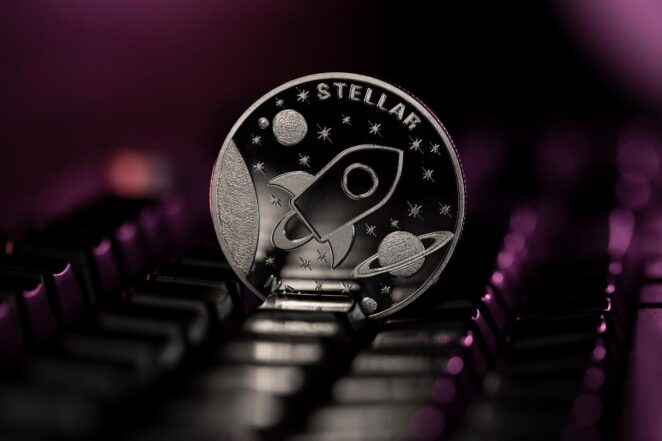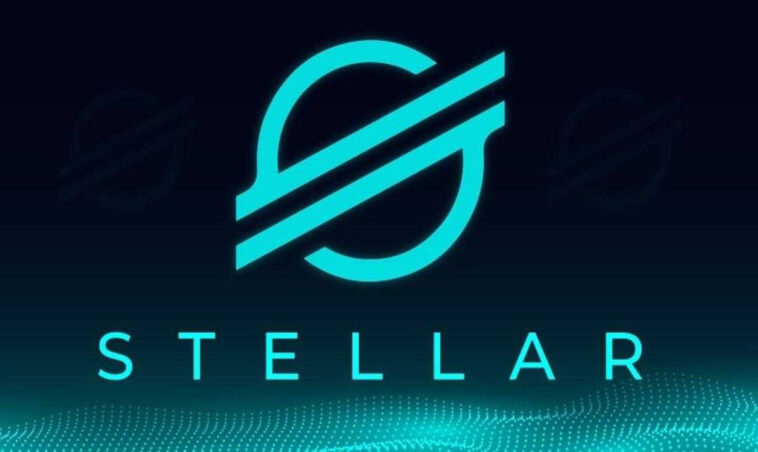Stellar, founded in 2014 by Jed McCaleb, who is also one of the founders of Ripple, is a decentralized blockchain platform that is open-source and intended to enable transfers of assets and cross-border payments.
XLM serve as both a means of exchange and a bridge currency for cross-border transactions within the Stellar network. This native cryptocurrency enables the exchange of other currencies or assets and is tradable on multiple cryptocurrency exchanges.
Stellar’s noteworthy feature is its capacity to facilitate rapid and cost-effective cross-border payments. Within the network, users can transact in multiple currencies, and settlements take just a few seconds. This feat is achieved via Stellar’s decentralized exchange, which allows currency conversion without a central authority or intermediary.
In addition to its cross-border payment capabilities, Stellar provides a host of other features including the creation and issuance of personalized tokens, smart contract functionality, and the ability to construct decentralized applications on the platform.
What is XLM Token?
The Stellar network’s native cryptocurrency is XLM, which is also commonly known as Stellar Lumens or simply Lumens. XLM functions as both a means of exchange and a bridge currency within the Stellar network.
Within the Stellar network, XLM has several important applications. Initially, it serves as a transaction fee, where users pay a minor amount of XLM to carry out transactions. XLM can also enable the exchange of other currencies or assets on the network. Suppose someone wants to send USD to another individual who only possesses EUR. In that case, the transaction can be accomplished by exchanging USD for XLM and then exchanging XLM for EUR.
XLM can also be employed to enable micropayments, as it has low transaction fees and allows for the transfer of very small amounts of value. This makes XLM ideal for scenarios where traditional payment methods may prove too costly or cumbersome.
Apart from the aforementioned applications, XLM is also utilized for voting on specific decisions regarding the Stellar network, such as the inclusion of new validators or modifications to the protocol.
What is the current price of XLM Token?

It has a maximum supply of 50,001,806,812 XLM coins and a circulating circulation of 26,499,405,146 XLM coins. The highest price paid for Stellar (XLM) is $0.87556, which was recorded on Jan 03, 2018. At the time of writing, XLM market cap is 2,362,771,876. The current XLM token price is $0.089 per coin. The 24-hour trading volume for the coin is $80,185,977.
How Does Stellar Work?
- Account creation: Creating an account on the Stellar network is possible for anyone by producing a pair of public and private keys. The account is identified through the public key, while the private key is responsible for authorizing transactions.
- Asset issuance: On the Stellar network, it is possible for anyone to create and release new assets, such as traditional currencies, cryptocurrencies, or other types of assets. These assets are represented in the form of tokens on the network.
- Asset exchange: Through a decentralized exchange on the Stellar network, users have the ability to trade one asset for another. This facilitates swift and cost-effective cross-border payments, as users can readily convert one type of currency into another.
- Transaction settlement: Once a user initiates a transaction on the Stellar network, it is broadcasted for validation. A decentralized network of validators verifies these transactions using the Stellar Consensus Protocol, a consensus algorithm that helps reach a consensus on the state of the network. Once the transaction is validated, settlement occurs in mere seconds.
- Smart contract capabilities: Stellar possesses the ability to support smart contracts, which permits developers to construct decentralized applications on the platform.
What are the Use Cases of Stellar?

- Cross-border payments: Stellar’s primary application is in cross-border payments, where users can transmit and receive payments in multiple currencies that are settled within seconds. This is made feasible by the decentralized exchange offered by Stellar, which enables currency conversion without any central authority or middleman. Stellar’s emphasis on quick and cost-effective cross-border payments has rendered it a preferred choice for companies engaged in international payments, including remittance firms.
- Token issuance: Stellar provides the capability for its users to generate and distribute personalized tokens over its network. These tokens are versatile and can represent a broad range of assets, including conventional currencies, commodities, stocks, and even real estate. Through leveraging the Stellar network for token issuance, users can benefit from its prompt transaction settlement speed and minimal transaction costs.
- Micropayments: Stellar’s capability to transmit minuscule amounts of value and its nominal transaction fees make it an ideal option for micropayments. This encompasses activities such as compensating for digital material or rewarding content producers on social media channels.
- Decentralized applications: Stellar endorses smart contract functionalities that enable developers to construct decentralized applications atop the platform. These applications can comprise decentralized marketplaces or voting systems, among other possibilities.
- Asset exchange: Stellar’s decentralized exchange empowers users to exchange assets with each other on the network, whether it be traditional currencies for cryptocurrencies, or cryptocurrencies and tokens with each other.
Vantages of Stellar

- Fast transaction processing: Stellar’s Stellar Consensus Protocol (SCP) consensus algorithm enables swift transaction processing times. Transactions are confirmed and settled in a matter of seconds, rendering Stellar a perfect choice for use cases like cross-border payments or micropayments.
- Low transaction fees: Stellar’s transaction fees are highly economical, often costing only a fraction of a cent or a few cents per transaction. This feature of Stellar’s platform makes it a practical and cost-effective choice for various use cases, including those that involve small transactions.
- Decentralized exchange: Stellar’s decentralized exchange facilitates the effortless swapping of various currencies and assets within the network, eliminating the requirement for a centralized exchange. This feature empowers users by providing them with more authority over their assets while also minimizing the potential danger of security breaches or hacking.
- Custom tokens: Stellar offers the functionality for users to generate custom tokens within the network, which can serve as representations of various assets ranging from conventional currencies to commodities or real estate. This feature enables users to have an extensive selection of options when creating and exchanging assets on the platform.
- Smart contract capabilities: Stellar possesses the capability to support smart contracts, empowering developers to create decentralized applications atop the platform. This feature makes Stellar a versatile platform suitable for a broad spectrum of use cases beyond basic payment transactions.
- Support for multi-currency transactions: Stellar’s platform is constructed to facilitate multi-currency transactions, allowing users to send and receive payments using various currencies without necessitating the involvement of a central authority or intermediary.
Stellar is a blockchain platform that aspires to develop innovative, open-source financial apps and make international money transfers simple and affordable for everyone.




